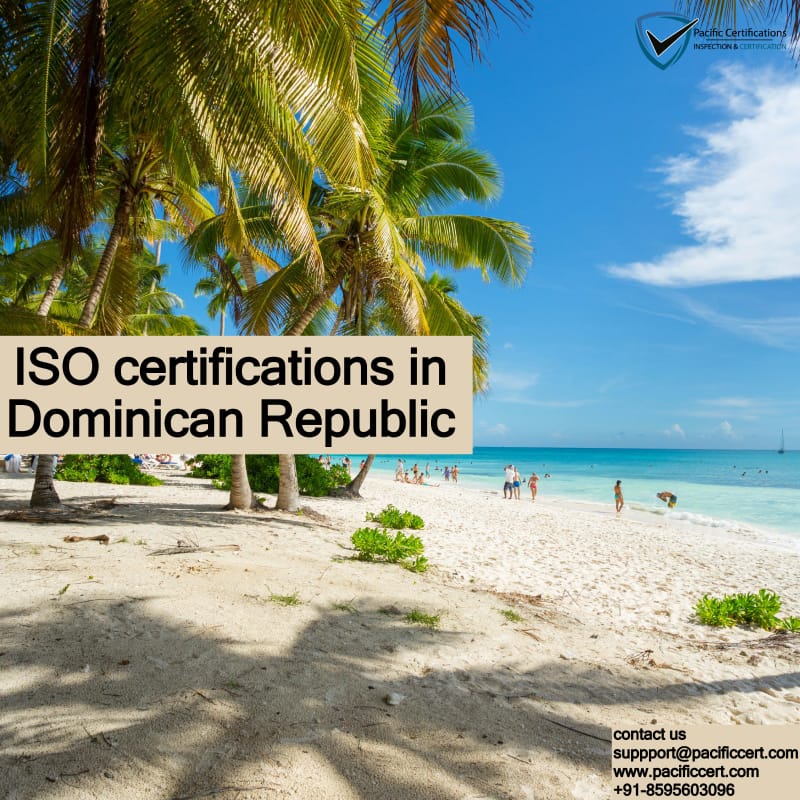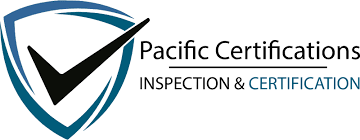ISO Certifications in Dominican Republic, Popular Standards, Requirements and Benefits

Introduction
ISO certifications play a crucial role in enhancing the operational efficiency, quality, and safety of products and services provided by organizations worldwide, including those in the Dominican Republic. These certifications aim to ensure quality, safety, efficiency, and trust. Given the diverse economic sectors in the Dominican Republic, ranging from manufacturing and agriculture to services and tourism, various ISO certifications are applicable and beneficial to organizations seeking to improve their international competitiveness, meet regulatory requirements, and fulfil customer expectations.
Key ISO Certifications and Applicable Standards
ISO 9001: Quality Management Systems (QMS)
This standard helps organizations ensure they meet customer and other stakeholder needs within statutory and regulatory requirements related to a product or service. ISO 9001 is the foundation for continuous improvement and customer satisfaction.
ISO 14001: Environmental Management Systems (EMS)
ISO 14001 assists companies in managing their environmental responsibilities in a systematic manner that contributes to the environmental pillar of sustainability.
ISO 45001: Occupational Health and Safety (OH&S) Management Systems
This standard provides a framework to improve employee safety, reduce workplace risks, and create better, safer working conditions.
ISO 27001: Information Security Management Systems (ISMS)
ISO 27001 helps organizations secure their information assets such as financial information, intellectual property, employee details, or information entrusted by third parties.
ISO 22000: Food Safety Management Systems (FSMS)
Applicable to any organization in the food chain, ISO 22000 clarifies what an organization needs to do to demonstrate its ability to control food safety hazards to ensure that food is safe.
Click here to find out more applicable standards to your industry
How Pacific Certifications Can Assist?
Audit and Certification Process:
Gap Analysis:
We can conduct a gap analysis to understand your organization's current position against the ISO standard requirements. This helps identify areas that need more work before formal assessment, saving your time and money.
Formal Assessment:
This two-stage process starts with a preliminary visit to your organization to review your readiness for assessment by checking if the necessary ISO procedures and controls have been developed. The next stage assesses the effectiveness of these procedures and controls to ensure they are working properly as required for certification.
Certification and Beyond:
Once your organization has passed the formal assessment, you will receive an ISO certification from Pacific Certifications, which is valid for three years, subject to satisfactory ongoing surveillance audits. We also provide post-certification support to ensure continuous improvement and compliance with ISO standards.
Organizations in the Dominican Republic seeking to gain ISO certifications can leverage the expertise and support of Pacific Certifications to navigate the audit and certification process efficiently. This partnership not only aids in achieving certification but also in maintaining and enhancing management systems for continuous improvement and compliance.
Requirements of ISO Certifications in Dominican Republic
The requirements for obtaining ISO certifications are generally consistent worldwide, with the certification process designed to ensure that organizations meet the specific criteria of the ISO standard(s) they are seeking to be certified against. Here's a breakdown of the common steps and requirements involved in the process, which we can facilitate for organizations in the Dominican Republic:
1. Understanding the ISO Standard
Familiarization with the Standard: Before embarking on the certification process, it's crucial for the organization to thoroughly understand the specific ISO standard(s) it wishes to obtain. This involves reviewing the standard's requirements and how they apply to the organization's operations and management systems.
2. Gap Analysis
Conducting a Gap Analysis: An initial gap analysis helps identify the areas where your organization's practices might not yet meet the standard's requirements. This step is crucial for planning the necessary changes to achieve compliance.
3. Developing or Enhancing Management Systems
System Development and Documentation: Based on the gap analysis, develop or enhance your management systems to meet the ISO requirements. This may involve establishing procedures, processes, and policies, as well as documenting them in accordance with the standard's specifications.
4. Implementation and Training
Implementing Changes: After developing the necessary systems and processes, the next step is to implement these changes across your organization. This often involves a significant amount of training for staff to ensure they understand their roles in the new systems.
5. Internal Audits and Review
Conducting Internal Audits: Before the formal assessment by a certification body, conduct internal audits to check that the implemented systems meet the ISO standard's requirements and are effectively maintained.
Management Review: Senior management should review the system's performance, based on internal audit results and other relevant data, to ensure its continuing suitability, adequacy, and effectiveness.
6. Choosing a Certification Body
Selecting a Certification Body: Choose a reputable certification body, which is accredited and recognized for issuing ISO certifications. Ensure the certification body is accredited to certify for the specific ISO standard you are seeking.
7. Formal Assessment by the Certification Body
Initial Assessment: The chosen certification body will conduct an initial assessment to verify that your organization meets the standard's requirements. This may involve a two-stage audit process, starting with a review of the documentation followed by an on-site audit to assess the implementation and effectiveness of the management systems.
Corrective Actions: If gaps are identified, your organization will need to address these through corrective actions before certification can be awarded.
8. Certification and Surveillance Audits
Certification: Upon successful completion of the assessment and any necessary corrective actions, the certification body will issue an ISO certification to your organization.
Ongoing Compliance and Improvement: ISO certifications typically require surveillance audits to ensure ongoing compliance with the standard and to foster continuous improvement of the management system.
We can support organizations in the Dominican Republic through each step of this process, from understanding the ISO standard and conducting a gap analysis to implementing changes and preparing for the formal assessment.
Benefits of ISO Certifications in Dominican Republic
ISO certifications offer a plethora of benefits to organizations in the Dominican Republic, cutting across various sectors such as manufacturing, services, healthcare, and food safety, among others. These certifications are not just badges of compliance; they represent an organization's commitment to upholding international standards of quality, safety, and efficiency. Here’s how ISO certifications, can benefit organizations in the Dominican Republic:
Enhanced Quality and Efficiency
Improved Product Quality: ISO standards, such as ISO 9001, focus on quality management systems that ensure products and services consistently meet customer and regulatory requirements, leading to higher customer satisfaction.
Increased Operational Efficiency: Implementing ISO standards helps streamline processes, reduce errors, and increase efficiency through the adoption of best practices.
Market Expansion and Customer Trust
Access to New Markets: Many markets and clients require suppliers to have ISO certifications. Being certified can open doors to new business opportunities both domestically and internationally.
Enhanced Customer Confidence: ISO certification is a testament to your organization's commitment to quality and continuous improvement, significantly boosting customer trust and confidence.
Regulatory Compliance
Ease of Compliance: ISO standards often align with regulatory requirements, making it easier for organizations to comply with local and international regulations, thus reducing the risk of non-compliance penalties.
Competitive Advantage
Differentiation in the Market: In a competitive market, being ISO certified can distinguish your organization from competitors, acting as a key differentiator and possibly a deciding factor for customers making purchasing decisions.
Risk Management
Improved Risk Management: ISO standards like ISO 27001 for information security and ISO 45001 for occupational health and safety focus on identifying, assessing, and managing risks, thus ensuring better preparedness and resilience.
Environmental and Social Responsibility
Environmental Sustainability: ISO 14001, which focuses on environmental management, helps organizations minimize their environmental impact, comply with applicable laws, and work towards sustainability goals.
Social Responsibility: By adhering to international standards, organizations also demonstrate their commitment to social responsibility, whether it’s through ensuring safe working conditions (ISO 45001) or contributing to environmental sustainability (ISO 14001).
Financial Performance
Cost Savings: Improved efficiency and reduced waste lead to significant cost savings. Moreover, meeting customer expectations can result in increased revenues from higher customer retention and acquisition.
Continuous Improvement
Fosters a Culture of Continuous Improvement: The ISO certification process encourages organizations to continuously review and improve their processes, ensuring that improvements are always being made over time.
We ensure that organizations not only achieve ISO certification but also embrace the underlying principles of quality, efficiency, and continuous improvement that these standards represent. This holistic approach not only aids in compliance and certification but also embeds a culture of excellence and innovation across the organization, driving long-term success and sustainability.
Which industries need ISO Certifications in Dominican Republic
In the Dominican Republic, where diverse economic sectors contribute to the national economy, several industries can particularly benefit from obtaining ISO certifications. These certifications not only enhance operational efficiencies and product quality but also open doors to global markets by ensuring compliance with international standards. Here are key industries in the Dominican Republic that often require or significantly benefit from ISO certifications:
1. Manufacturing
ISO 9001 (Quality Management Systems): Essential for manufacturers to demonstrate their ability to consistently provide products that meet customer and regulatory requirements.
ISO 14001 (Environmental Management Systems): Important for manufacturing industries aiming to reduce their environmental impact.
2. Agriculture and Food Processing
ISO 22000 (Food Safety Management Systems): Critical for ensuring the safety and quality of food products, from farm to fork.
ISO 14001: For sustainable farming practices and reducing environmental impact in agricultural operations.
3. Healthcare
ISO 13485 (Medical Devices): Pertinent for manufacturers and suppliers of medical devices, ensuring product safety and quality.
ISO 9001: To enhance quality management systems within healthcare facilities, including hospitals and clinics.
4. Information Technology and Telecommunications
ISO/IEC 27001 (Information Security Management Systems): Indispensable for IT and telecom industries to manage the security of assets such as financial information, intellectual property, and employee details.
5. Tourism and Hospitality
ISO 9001: To improve customer service and satisfaction in a highly competitive industry.
ISO 14001: For sustainable tourism practices that minimize environmental impact and enhance community engagement.
6. Construction and Engineering
ISO 9001: Ensures quality in construction processes and materials, leading to safer and more reliable infrastructure.
ISO 45001 (Occupational Health and Safety Management Systems): Essential for managing health and safety risks on construction sites.
7. Education and Training
ISO 21001 (Educational Organizations Management Systems): Supports educational institutions in providing quality education and ensuring learner satisfaction.
8. Financial Services
ISO/IEC 27001: For protecting financial information and ensuring confidentiality, integrity, and availability of data.
9. Energy and Utilities
ISO 50001 (Energy Management Systems): Helps organizations in the energy sector improve energy performance, including efficiency and consumption.
10. Transportation and Logistics
ISO 9001: For enhancing efficiency and reliability in logistics and supply chain management.
ISO 14001: To reduce environmental impact from transportation operations.
Contact Us
We can provide expert guidance and support throughout the process of obtaining ISO certifications. From initial gap analysis to certification audit and continuous improvement post-certification, Pacific Certifications can help organizations in the Dominican Republic leverage ISO standards to enhance their operational efficiency, comply with regulatory requirements, access new markets, and ultimately, achieve sustainable business growth.
Pacific Certifications is accredited by ABIS, in case you need support with ISO certification for your business in Dominican Republic, please contact us at [email protected] or +91-8595603096.
Ready to get ISO certified?
Contact Pacific Certifications to begin your certification journey today!
Suggested Certifications –
Read more: Pacific Blogs

